
I'd always been happier in one-on-one conversations in quiet rooms. It reduced the risk of people talking over each other, thus creating white noise and excluding me from participating.
You can imagine then the glee with which I encountered my first e-mail. This was perfect! A series of personal discussions, with as many friends as were online, cutting through time-zones across the whole world.
It was like the universe opened a door and hailed me with a welcoming, "Come on in! The water's great!"
It should have come as no surprise therefore to learn that Vinton Cerf (who led the programming of the world's first commercial email program) is partially deaf. He's a man also responsible for many other aspects that are now fundamental to the world wide web. Cerf is Google's vice-president for a start.
Then there were forums, live chats happening with dozens of people typing away. I was not required to hear. No-one asked, nor needed to know, whether I was fully hearing, deaf or any permutation between.
For the first time in my life, such considerations were irrelevant. I stood and fell on my own merit, without worrying about suppressing my frustrations nor if I'd heard all of the facts.
There is no deafness on the internet. At least not unless you're checking out a video or being linked to a song.
Of course, verbal chat programs, like Skype and Vent do occasionally allow the real world factors to play out online too. But you have the option of side-stepping them without feeling like you're missing the best part.
Or, like I do, you keep to conversations solely with those aware of your limitations, and who will ensure that they are never an issue.
For me, it wasn't so much the Age of Technology and Information, but the Age of Joining Human Society.


 My friend and I couldn't have a more different attitude towards the online world if we tried.
My friend and I couldn't have a more different attitude towards the online world if we tried. kate
on 10/01/2012
kate
on 10/01/2012




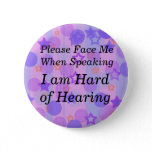
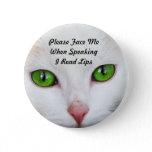
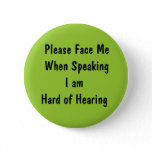
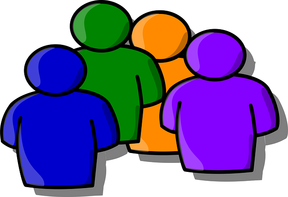 One of the biggest bug-bears of my life is the seeming inability of anyone to watch the television in silence.
One of the biggest bug-bears of my life is the seeming inability of anyone to watch the television in silence.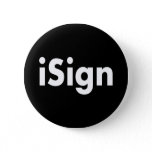


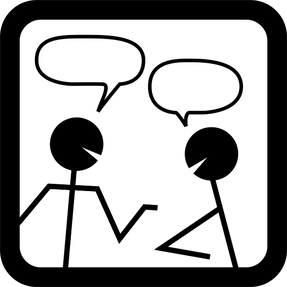









 St Tydecho's Churches in West Waleson 09/03/2014
St Tydecho's Churches in West Waleson 09/03/2014
 Goodies for an Outlander Premiere Partyon 03/06/2015
Goodies for an Outlander Premiere Partyon 03/06/2015
 Holocaust Memorial Day Interview with Rainer Höss, Grandson of Rudolf Architect of Auschwitzon 01/24/2015
Holocaust Memorial Day Interview with Rainer Höss, Grandson of Rudolf Architect of Auschwitzon 01/24/2015
 Romantic Valentine Gifts for an Outlander Fanon 01/16/2015
Romantic Valentine Gifts for an Outlander Fanon 01/16/2015

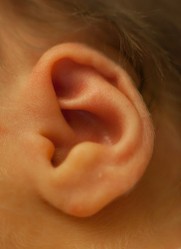
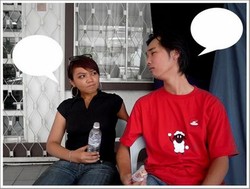
Comments
I've been on the other side of such exchanges so many times! I'll look up to find someone looking at me with a hurt or annoyed expression, and realise that they'd attempted conversation in a noisy environment.
No need to be embarrassed though. You weren't to know and it all turned out fine in the end.
Excellent article. One time I was walking somewhere and couldn't find my way. There were two ladies walking ahead and talking to each other. So I asked them for directions. I was right behind them. I asked. I asked. They kept on walking and talking. At first I thought they were being rude. Then I moved up ahead and pounced in front in them. I was scared. I was lost. They both stopped and looked at me real hard. I asked them for directions. It was at that point, I realized they were both deaf. But they could read my lips, so they answered me. I was so embarrassed inside of myself. I said "Thank you" and hurried off.
But you're right about having great online conversations. Though you can't hear the tone of a person's voice, most of the time you know it's friendly discussion. Have not really had bad experiences with communicating via the Internet. It brings people together - handicapped or not. It's fantastic for people who can't get out of the house much. (Like me.)
Thank you. :) I've certainly embraced it with open arms!
Good topic. I can understand how the internet could impact someone with a hearing impairment. There's more than one way to express a gregarious personality!
I don't know if it was so good for the novelty value, or if it really was that wonderfully sociable. I haven't tried it again since to try, but only because my friends and I haven't been on-line together at the same time for a couple of weeks.
Oh! I forgot to mention the visually impaired, so thank you for bringing that up. Someone I used to work with was a rep for the RNIB. I remember him telling me how wonderful his laptop was, as he'd got a text-to-speech program installed.
Oh gosh, I love your story about watching movies while doing text-chat! I'm a little hard of hearing, and any chatter throws me out of a film so I can't concentrate. That sounds like a fun idea!
Seriously, thank you for sharing what the web does for the deaf. It's also revolutionized the world for vision-impaired people who can now use text-to-speech and speech-to-text tools to translate between the spoken and written medium and communicate without relying on a sighted person to transcribe written materials into Braille for them.
Thank you very much for sharing the point of view of a dyslexic. I've never had to use that software, so I was unaware of how horrific it is. I'm sorry that the Age of Technology has done this to you.
As for a reading option on websites, that would be so easy to do. It may be time-consuming on the part of the webmasters, especially those with large sites. I'm sure a program could be written to do it automatically though.
Let me muse on this for a while.
It wonderful how new methods of communication are overcoming traditional barriers for deaf and hard of hearing people. I also think its great you mentioned dyslexia and how those who have it are often very disadvantaged by today's dependence upon on-line information. As for assistance technology!! Screen reader is SSSOOOOO SSSLLLOOOOOOWWWW it is painful to use and Dragon voice recognition software takes ages to get used to your voice and then rewards your patient instruction by crashing every 5 minutes. I think a lot more needs to be done on websites generally - like a reading option built into the website - this would be universally useful surely - not just for individuals with dyslexia.
You're very welcome. Thank you for making them. <3
I recommend it. It's a way to have a conversation without having to rely on the background noise staying gone.
Wow, thanks for mentioning my buttons and my article. Excellent article. I've never done the chatting thing online. That sounds interesting.